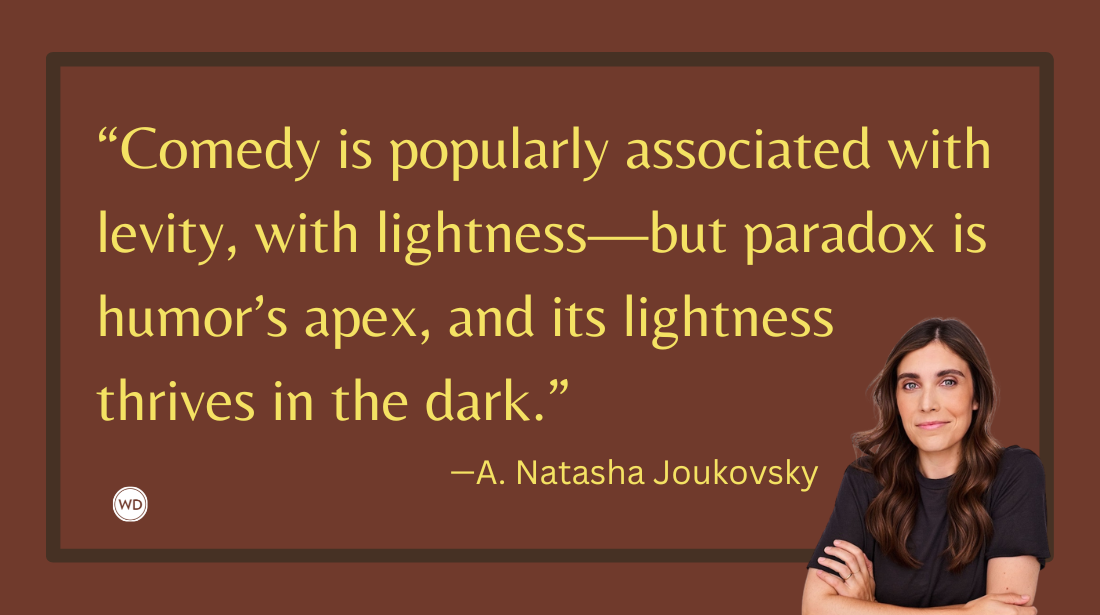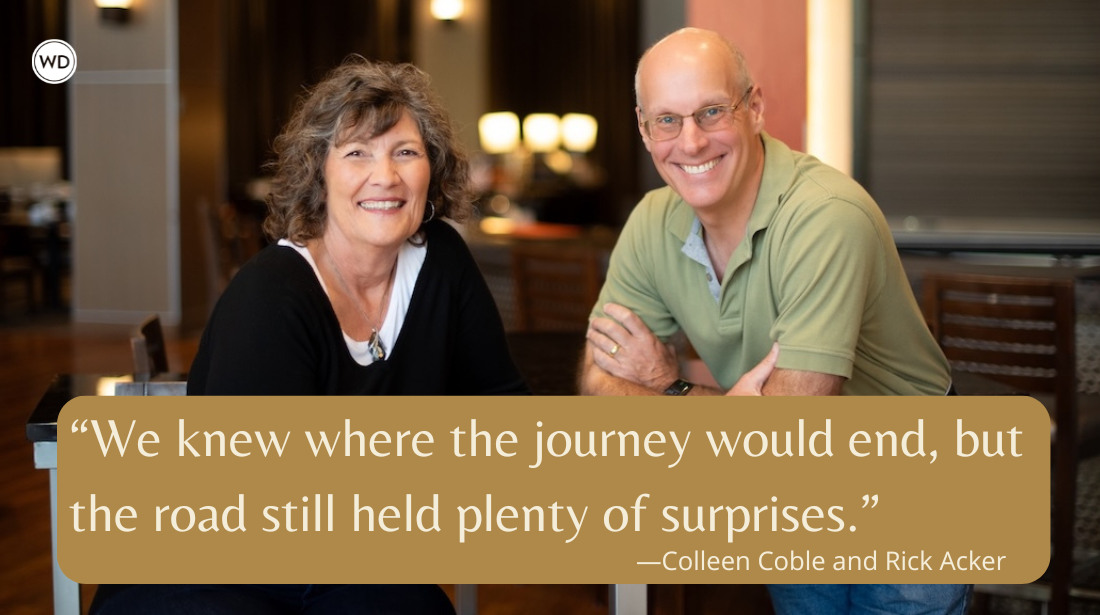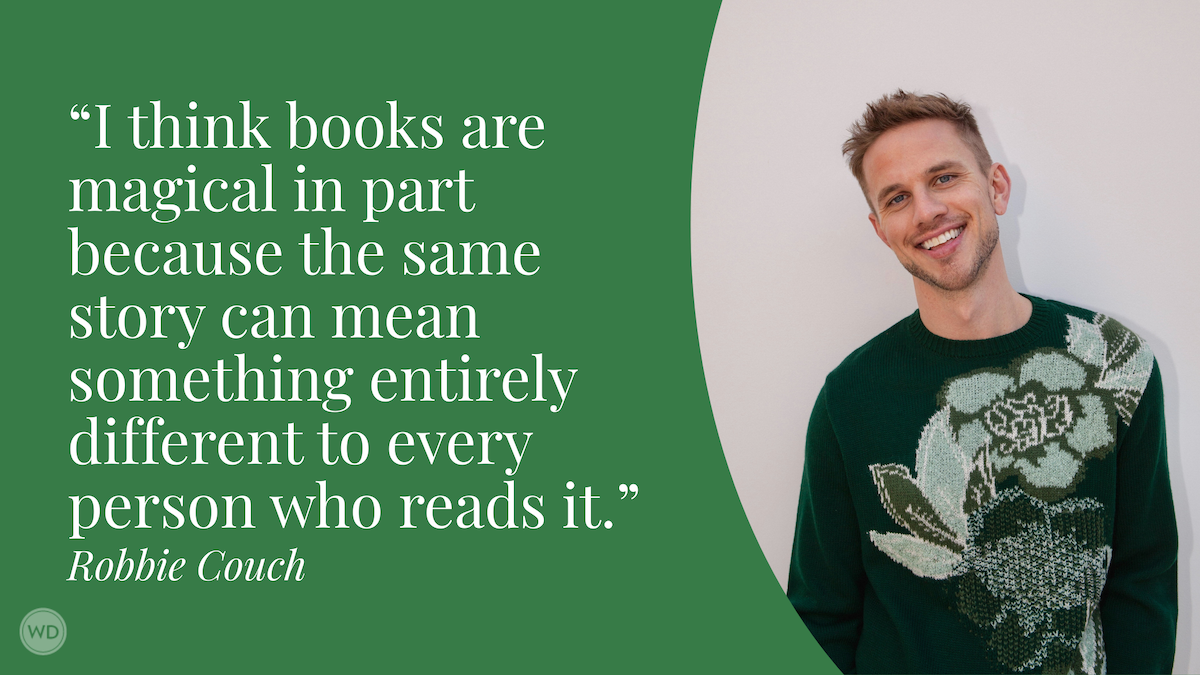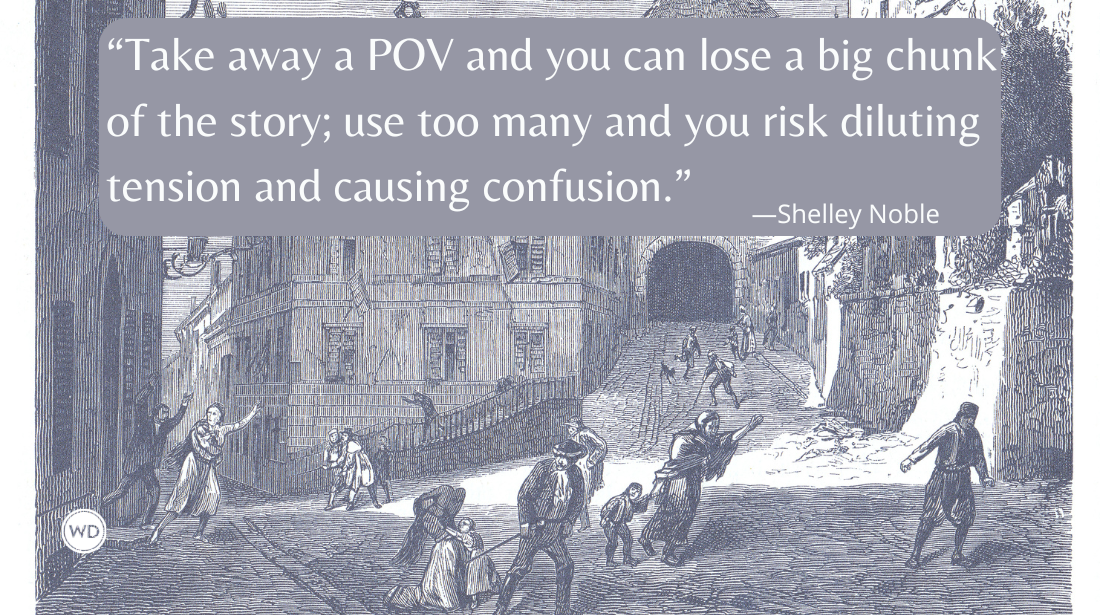Hench: An Interview With Natalie Zina Walschots
The author discusses what inspired her novel about supervillan henches and how video games influence her writing.
If you're as tired as I am of seeing Hollywood release superhero movie after superhero movie, or even enjoy everything in the superhero universe, then I highly recommend reading Hench (September 2020, William Morrow) by Natalie Zina Walschots.
The novel exposes the darker side of superheroism when Anna, who makes her living temping for supervillians, has a near-death encounter with the revered Supercollider. Anna will stop at nothing to expose the wrongdoings of Supercollider and the system that created him—and along the way, wields her own superpower of a properly executed spreadsheet.
Walschots' superpowers include writing for video games (she has worked with indie game studios); poetry (she published two collections of poetry for supervillans before penning her debut novel); and heavy metal journalism. WD talked with Walschots about how these talents came together to create Hench.
I won’t ask about why you chose to write about henchpeople, because your press kit already answers this question.
The destructiveness of heroism isn’t really something I’ve seen before, except at the beginning of The Incredibles (but this story is of course told from the heroes’ points of view). So I’d like to ask you more about how the story formed once you chose to write about henches.
Once I knew that this was going to be a story about henchpeople, and more generally the people on the margins of most superhero stories, it took a while to settle on the exact perspective. I thought a lot about following the characters who are in the book referred to as the Meat: those who work as a supervillain’s physical enforcers, doling out and absorbing violence. As someone with a complicated relationship to violence and an active interest in combat sports, this was very tempting, but it didn't feel quite right.
I had a breakthrough moment I started thinking about how henchpeople would get hired in the first place. There couldn't just be, like flyers taped to telephone poles (OK maybe there totally could but go with me here). I imagined a temp agency that would specialize in staffing henches and what those job listings and interviews would be like. Once that started to take shape in my head and I started to imagine the vast amount of adminitrivia and infrastructure that would be required to keep a volcanic base operational, I knew that’s what I had to focus on.
I also have to admit it’s a perspective I have the most personal experience with. I too have worked a lot of very boring jobs occasionally for terrible people, and have freelanced extensively, and I know what it is like to be both skilled and treated as entirely disposable. So drawing on those experiences, and those of my friends and colleagues, was a rich vein to mine.
On that note, what did your writing process look like? Did Hench go through any major revisions or hit any hiccups? What was your time frame for writing this book?
I wrote the first words of Hench at a game jam. I was working on a game about “women in refrigerators” with a couple of collaborations (Izzie Colpitts-Campbell and Kat Verhoeven), and during a break I wrote the first few scenes at the temp agency and Anna’s new job. I blasted through the first 30,000 words or so in a very short period of time, and then promptly shelved it for almost three years.
When I returned to the manuscript in 2016, I also started a much more sustainable process. Perhaps unsurprisingly it involved spreadsheets; my partner built me a beautiful sheet that tracked my progress and word count, visually displaying that forward momentum. Hench was written about 750 words at a time with almost no outlining, just a constant act of discovery every day. With steady progress, the first draft got finished in about six months. I did a full second pass on the novel throughout 2017 and 2018, where massive revisions took place. I did a series of theme and character meditations before I started in, at my partner’s suggestion, so when I started writing I had a much better idea of who Anna was and what I wanted her story to be. The emotional core of the book was still the same, as was the main narrative arc, but I focused much more closely on the quality of the writing itself, deepening the character development and pulling out the themes. I was done with that draft in the summer of 2018 and handed it off to my agent. That led to another (though much less extensive) pass before he took it to market in the spring of 2019, where it was acquired by David Pomerico at HarperCollins for the imprint William Morrow.
David is an extraordinary editor, and together we did another two rounds of revisions. The story and the characters remained intact, but the plot was tightened and a lot of holes were patched, and a couple of character arcs changed considerably (Quantum Entanglement, in particular, ends up in a very different place that she did in earlier drafts). He was wonderful to work with—he saw what I was trying to do in Hench and from the first moment was focused on making sure it was the best book it could possibly be, and that vision really shows.
How did you find your agent?
On Twitter. I’m serious.
For a long time, I made my living as a freelance writer, mostly working as a heavy metal journalist. I love aggressive music, especially live shows. There was a time when I was going to three to five shows a week to review them, and live-tweeted most of them as well. Also around that time I had a column called “Girls Don’t Like Metal” that celebrated women in the genre. Being very visible and very vocal about the things I loved did not garner entirely positive responses, which meant I often found myself arguing with some sexist asshat.
My agent, Ron Eckel, noticed me yelling about metal and feminism and being confrontational with edgelords, and asked if we could have lunch and see if we’d be a good fit to work together. After doing some “am I about to get scammed and/or murdered” check-ins with friends who knew him (Canadian publishing is very small), I agreed and we ended up getting along like a house on fire. Initially we thought that it would be a nonfiction collection of music writing or something like that would be the thing we’d end up collaborating on, but then I delivered the manuscript to him.
From the beginning, he’s been an absolute champion and is one of my most stalwart supporters. I have no illusions about the fact that I am very lucky both to have been noticed at all, and that the person who noticed me was one of the very good ones.
What advice would you give to other writers who may want to write their stories from a non-heroic point of view?
We all like to think of ourselves as good people. Our moral centers are what they are because we believe they are the righteous choice. If you’re asking your reader to identify with, have sympathy for, and understand the perspective of someone whose values don't align with theirs, you are asking them to stretch.
It’s important not to make them stretch too far all at once, lest that empathy snap. Instead, lead them slowly toward more challenging actions or thoughts. Show their motivation and rationale every step of the way, so that your readers can see exactly why your character would choose what they do, and keep stretching along with the story. You can lead someone shockingly far if you give them the time and space to adjust along with your character, and they’ll be right there along with them for very complicated moral journeys while still being able to identify with your characters.
It’s also possible that your readers won’t be able to follow where you lead and will be squicked out by your villainous protagonists. Sometimes this happens right away, and someone just can’t identify with the character you’ve made. Other times, a reader follows you a long way, but hits a wall when something happens that they just can’t get past. Some readers just can’t condone Anna’s actions very early on, and aren’t on board with her journey, and that’s fine! But a lot find something to cling to and go along with her right to the end, because they made every step with her and know exactly what lead her to where she is.
Without giving too much away, I loved the world-building in this novel that seems like it could take place in our universe, but not quite—the poor workplace conditions of supervillains, the reckless disregard of superheroes, the politics of moving up and making a name for yourself in the industry, and all those little details in between.
Do you have any special routine that you use to get yourself in the mindset of this world before you write, or any advice for writers on world-building?
This question makes me sound like I am so thoughtful and organized, when honestly the answer to so many world-building questions is “I put it in because I thought it was really cool and/or funny.” Often, I would write something that I liked, and then reverse-engineer a universe in which that thing could exist or take place. Now and again it didn’t work, and I couldn’t find the justification for it, and so a detail or two would be reluctantly abandoned. But more often than not, I wrote what I wanted to and what I liked, and figured out a way to arrange the world around all of those things.
As for advice, unquestionably the most important piece I have is not to over-explain things. Just allow things to exist in your world as pieces of environmental storytelling, and have your characters comment on them only as much as it makes sense for them to do so. You don’t need to explain exactly how a device works or all of the political maneuvering that led up to a party; you can just show what it does, and paint a complicated web of tension in the moment. Giving your world the space to just breathe and exist can be very powerful.
Can you talk about the work you do for video games? Has this work influenced your novel writing in any way?
I’ve been writing games for almost seven years now, and that has looked like a lot of different things. I have done everything from branching dialogue to more complex narrative design, and have also written scripts for live-action roleplaying games and other interactive experiences.
The biggest influence this has had on my fiction is the way I approach choices. Whenever a story I am working on reaches a key narrative moment, I tend not to think “what is going to happen” but “what are all of the possibilities for things that might happen.” I look at these important moments as nodes from which many story branches might spring and choose the one I want to explore. If it doesn't work, I can always go back to that last narrative hub and explore a different path. Not limiting myself to one choice at key moments and instead thinking of multiple possibilities as a matter of course results in my fiction feeling more nimble and unusual in terms of story choices.
I have to ask—given the choice, would you become a hero or a villain?
My lot is thrown in with the villains now. Too much evil and misery takes place in the name of heroism.
What is the best piece of writing advice you have that we haven’t discussed yet?
It seems like the most obvious thing in the world, but it completely changed the way I write: Write the things you like to write, and don’t write the things you don’t want to write.
It’s very easy to get caught up in what you think you should be writing, or what a serious book ought to be like, or what the genre demands or your readers might want to see or whatever. Instead, make a list of everything you like when it happens in something you’re reading. Do you like slow-burn romance, action sequences, straightforward language? Whatever it is, if it makes you happy when you’re reading it, write that down. Similarly, write a list of things that you dislike you encounter them, like too much exposition, or long descriptive passages of the landscape, or weather metaphors. Do all of the first list and none of the second. It was a complete game-changer for me.
What next for you? Any other exciting projects coming up?
I’d love to spend more time in the Henchiverse—there is a lot more to explore and there are characters I would love to give more screen time (page time?). I’m making a lot of notes and writing here and there, but nothing is certain in terms of future books.
In the meantime, I am working on a video game with several collaborators about post-apocalyptic intentional communities (there are sassy chickens), co-developing a ttrpg system with core mechanics centered on relationships instead of combat, and writing a fake true-crime podcast. I also just adopted an illegally small kitten.









